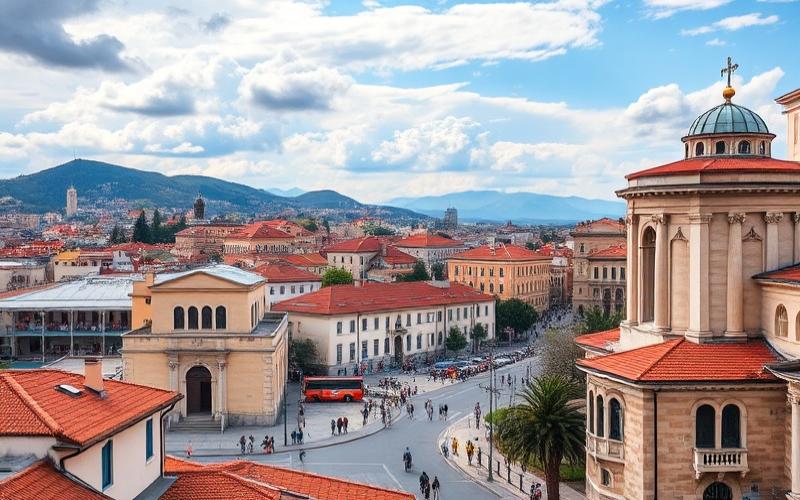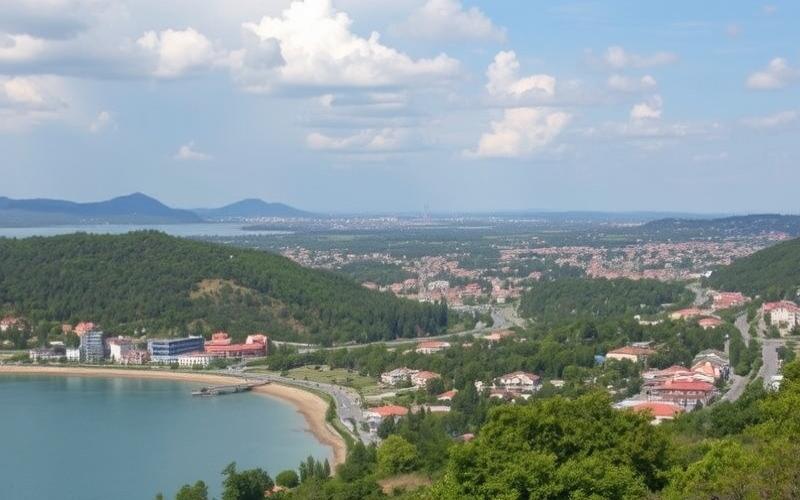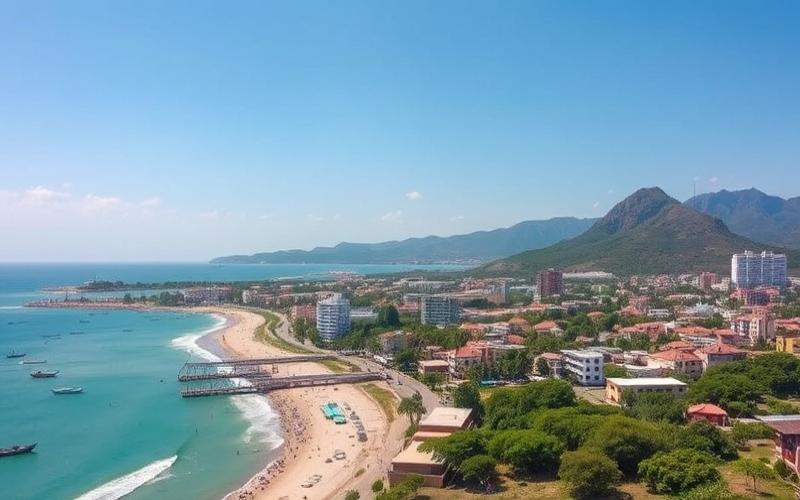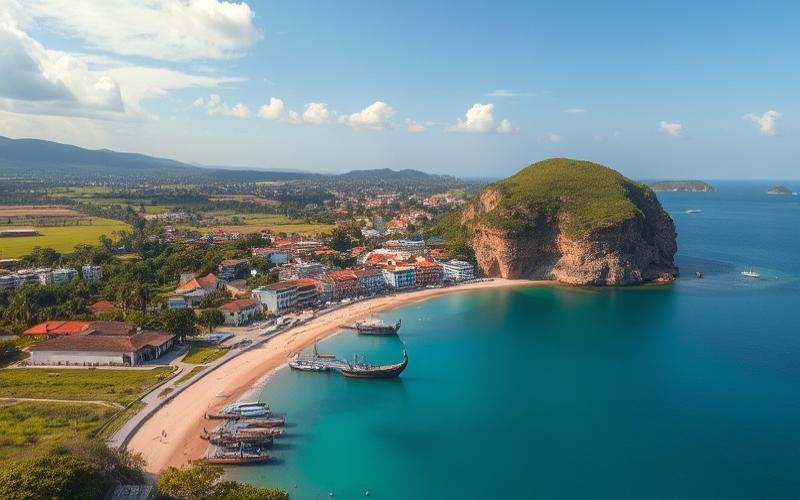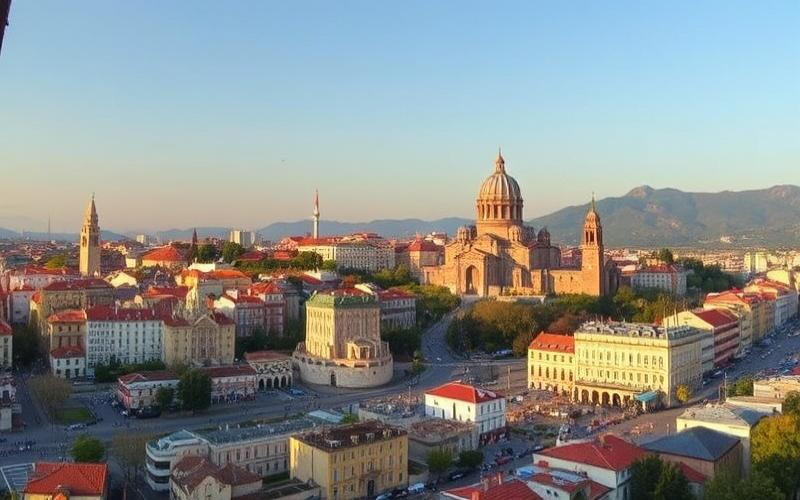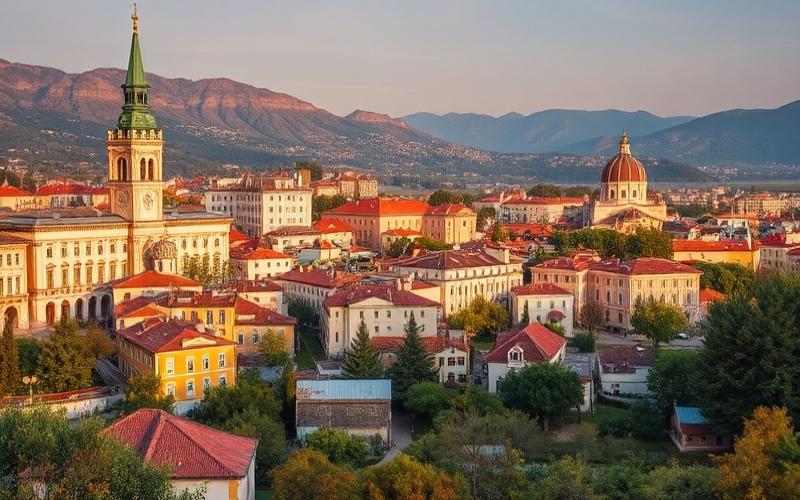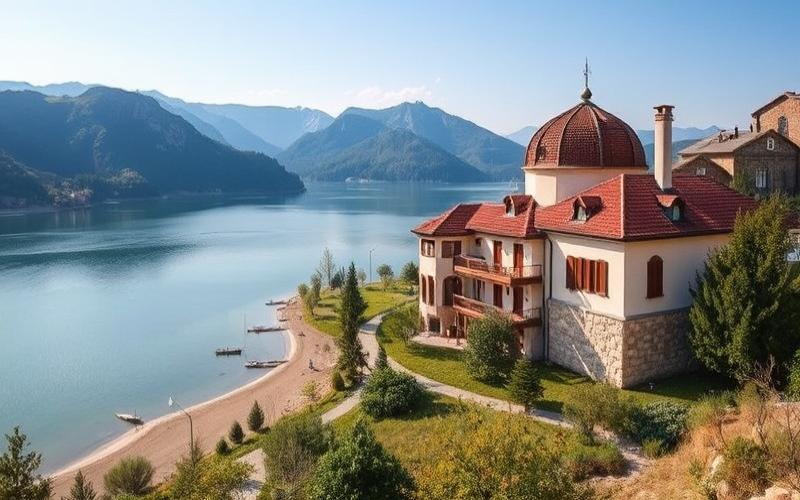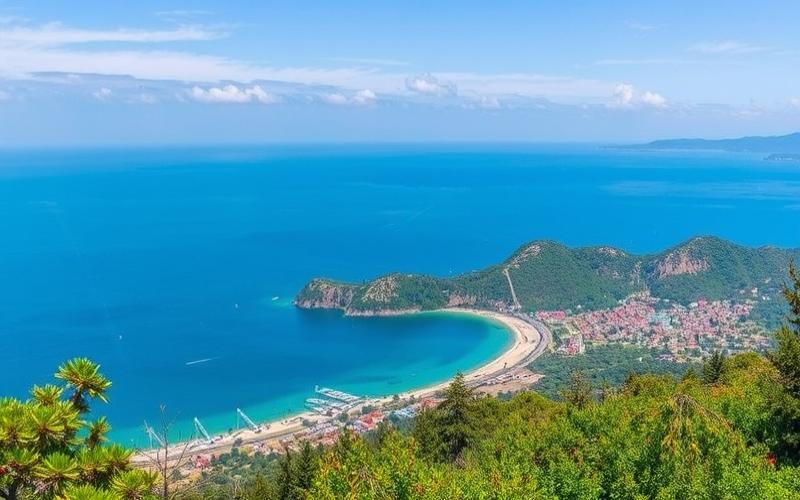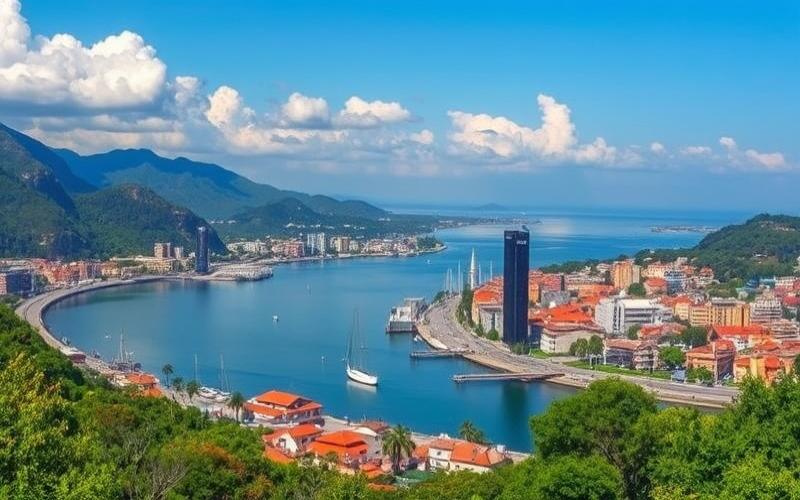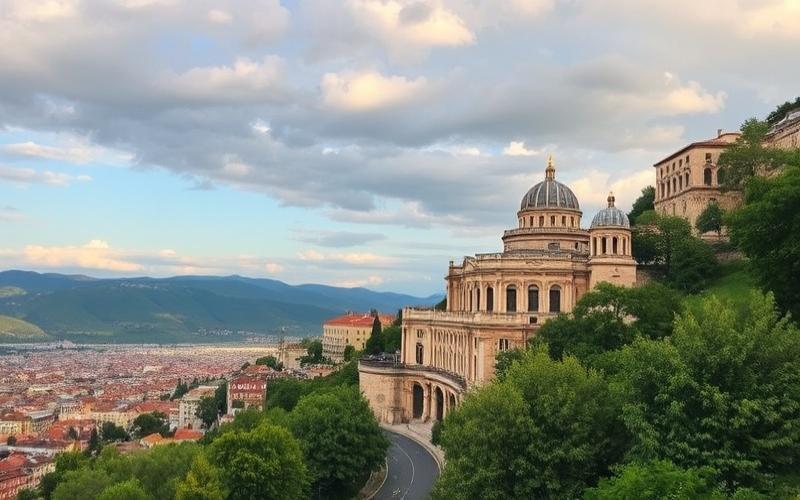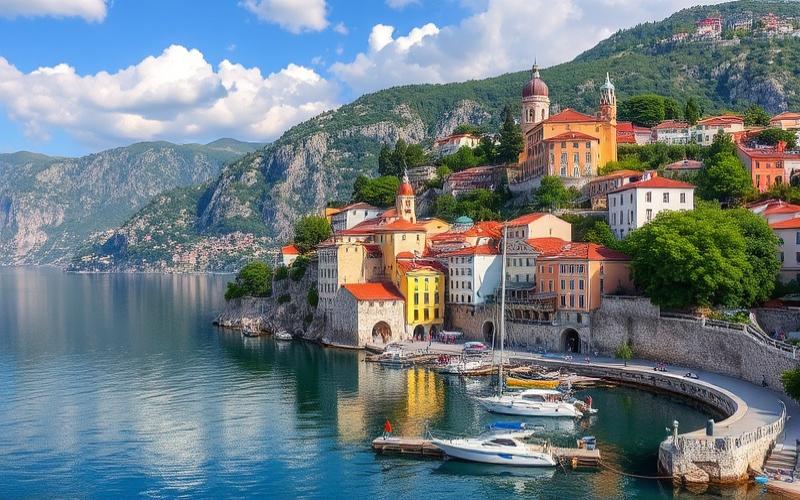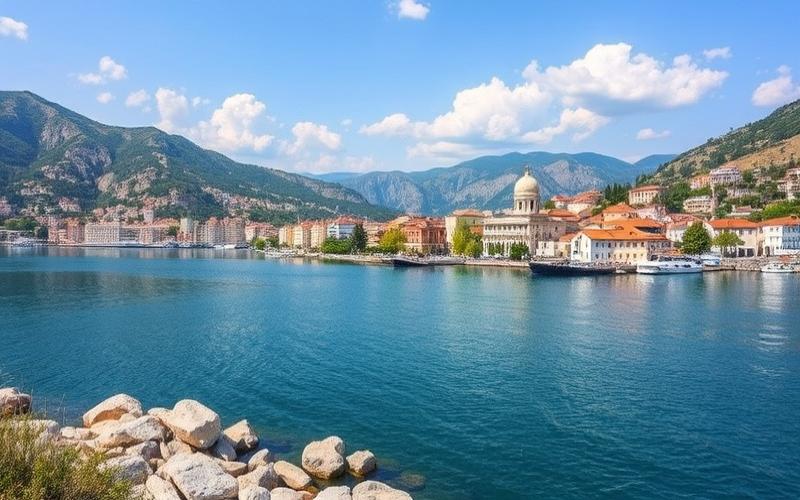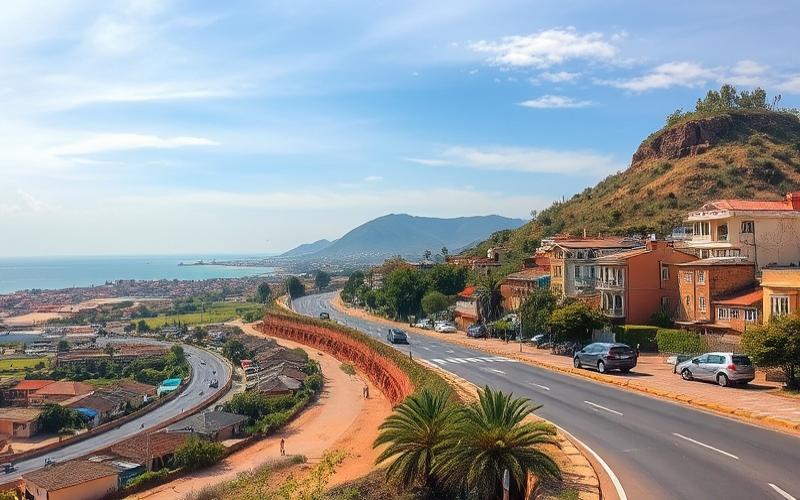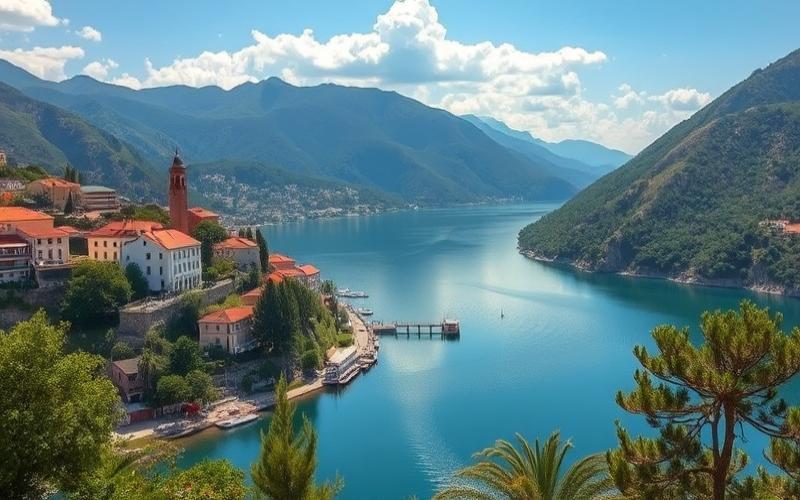
 Published on and written by Cyril Jarnias
Published on and written by Cyril Jarnias
In a booming real estate market like North Macedonia, crowdfunding is emerging as an innovative solution for investors looking to diversify their portfolios without committing substantial funds.
This increasingly popular financial model enables numerous individuals to participate in lucrative real estate projects while minimizing risks.
By investing collectively, participants can access real estate opportunities once reserved for an elite few, while simultaneously supporting local economic development.
It’s both a flexible and accessible way to capitalize on the dynamism of this rapidly growing sector.
Real Estate Crowdfunding in North Macedonia: An Innovative Approach
Real estate crowdfunding is a participatory financing method that allows a large number of investors, typically through online platforms, to collectively contribute to funding a real estate project. This approach differs from traditional financing primarily through:
- Broader access to private or institutional investors with lower entry thresholds.
- Rapid mobilization of complementary or alternative funds to conventional bank loans, often perceived as lengthy and restrictive.
- Increased transparency on projects through digital interfaces and tracking provided by platforms.
| Traditional Financing | Real Estate Crowdfunding |
|---|---|
| Predominance of bank credit | Collection from multiple investors |
| Limited access (high equity required) | Accessible investment starting from a few hundred/thousand euros |
| Lengthy and formal procedures | Digitized and simplified process |
In North Macedonia, real estate crowdfunding remains at an early stage of development. Although the practice is widespread in several European countries, it’s slowly emerging in this nation where 89% of stakeholders surveyed in 2020 considered it necessary to strengthen this financing method. Existing initiatives are still few; there isn’t yet a dominant local platform specifically dedicated to real estate.
Benefits for Different Stakeholders
- Real Estate Developers: easier access to funds to launch or accelerate projects without relying exclusively on banks; ability to test demand before marketing;
- Local/International Investors: opportunity to diversify portfolios with modest investments; access to real estate without direct management or full purchase;
- Regional Economy:
- Rapid stimulation of local construction sites,
- Potential job creation,
- Enhancement of urban fabric through collectively funded renovation or construction.
The Macedonian legislative framework doesn’t explicitly define crowdfunding. This regulatory gap hinders its growth as it creates legal uncertainties for both project initiators and investors. Discussions are underway to establish an appropriate legal foundation that would protect parties while promoting financial innovation.
The current absence in the local Macedonian market makes it difficult to present specific successful case studies regarding real estate crowdfunding. However, some developers have attempted one-off operations through social networks or general foreign platforms to raise pilot funds – but these examples remain confidential due to the lack of structured framework.
Main Challenges Encountered
- Clear absence of national regulation;
- Relative lack of trust in digital solutions among some traditional investors;
- Necessity for local and foreign initiators identified as financial innovators (fintechs):
- To massively inform/educate about this type of investment,
- To collaborate with the public sector to support this transition,
- To ensure rigorous and transparent management so each project inspires confidence despite its relative novelty in the Macedonian market.
To maximize the sustainable effectiveness of the model in North Macedonia:
A dedicated legal framework, appropriate regulation inspired by European best practices, and increased public awareness will be essential for this innovative approach to reveal its full economic and social potential.
Good to Know:
Real estate crowdfunding in North Macedonia distinguishes itself from traditional financing by offering developers the possibility to fund projects through numerous individual investments rather than through conventional banking institutions. This approach has gained popularity, with platforms like Funderbeam and Crowdestate becoming key players. It benefits developers by diversifying funding sources, as well as local and international investors by making real estate more accessible. The legislative framework supports crowdfunding development, although regulatory parameters could still be clarified to foster continuous growth. Successful projects, such as residential development in Skopje, illustrate the potential of this method, although challenges remain particularly in terms of transparency and investor protection. However, by strengthening regulatory policies and increasing public awareness, real estate crowdfunding could become an essential pillar of the real estate sector in North Macedonia.
Understanding How Real Estate Crowdfunding Works
Real estate crowdfunding, or participatory real estate investment, involves pooling funds from numerous individual investors through an online platform to finance a real estate project (purchase, renovation, construction, or development). Each investor thus acquires a fraction of the project and shares profits according to their stake.
In North Macedonia, this investment mode is still emerging. The real estate sector is traditionally dominated by direct purchase or investment through local companies benefiting from favorable tax framework (10% corporate tax). Macedonian legislation remains very favorable to landlord owners, making the market attractive for international investors.
Main Real Estate Crowdfunding Platforms in North Macedonia
To date, there are no major international platforms specialized in real estate crowdfunding operating specifically in North Macedonia. Collective investments occur mainly through:
- Private funds approved by the government under investment and citizenship programs.
- Some occasional local initiatives led by local real estate developers.
- Indirect access through certain European platforms occasionally offering Macedonian projects.
Typical Investment Steps:
- Registration on the platform or with the fund manager.
- Project selection: analysis of expected profitability, planned duration and associated risks.
- Subscription to desired amount (often starting from a few hundred to a few thousand euros).
- Electronic signature/contract specifying the share held and legal terms.
- Periodic monitoring: reports on project/construction progress.
- Receipt of rental income/dividends during the planned period then recovery of invested capital upon sale/completion.
| Step | Detail |
|---|---|
| Registration | Investor account creation |
| Selection | Analysis of project sheets & choice |
| Subscription | Minimum investment per project |
| Contract | Digital contract signature |
| Monitoring | Dashboard access + regular updates |
| Exit/Repayment | Capital recovery + return after transfer/resale |
Return on Investment Methods
- Rental income if leased during operation
- Real estate capital gains upon final sale
- Some projects offer a guaranteed fixed annual rate
Gross returns typically range between 7% and 12% depending on project nature/duration/expected yield; but these figures vary significantly depending on the developer and local market evolution.
Specific Regulatory Framework
Macedonian regulation doesn’t yet have a fully dedicated legal framework for classic real estate crowdfunding as seen in some advanced European countries; however:
Collective investments are possible through:
– Properly registered local companies (taxed at flat corporate rate)
– Private funds approved by government decree for those also targeting economic citizenship
A special tax applies during real estate property transfer: 2–4% of market value paid by buyer. No recent reform strictly regulates purely “crowdfunding” activity, but several laws already aim to protect foreign investors against common frauds.
Concrete Examples / Case Studies
Some notable successes include:
- Collective Funding:
Locally conducted operations recently enabled complete renovation of old buildings subsequently converted into high-end rental housing in Skopje with direct annual redistribution to subscribers – profitability higher than typically offered by local bank deposits thanks particularly to growing tourism dynamism in recent years. - Approved Private Funds:
Foreigners investing over €200,000 in an approved private fund benefited not only from attractive real estate returns but also – notably – obtained their North Macedonian passport without prior long residence requirement or specific language knowledge.
Advantages
- Low entry threshold compared to classic purchase
- Easy European portfolio diversification
- Light taxation & local legal stability
Risks
- Relative illiquidity until effective exit/resale
- Risk of developer/manager default with inadequate legal framework
- Local market value volatility & evolving regulatory context
The legal framework remains evolving: any operation must undergo rigorous verification with competent authorities before commitment.
Good to Know:
In North Macedonia, real estate crowdfunding allows investors to collectively fund real estate projects through platforms such as CrowdEstate and Estateguru, which facilitate online fundraising for specific projects. Typical steps include platform registration, project selection, and pooling funds with other investors, with each participant receiving shares proportional to their initial investment. Returns can come from eventual property resale or rental income, depending on each project’s terms. Regulation in North Macedonia, although not yet fully harmonized with European standards, was recently strengthened to protect investors, notably through a reform implemented in 2022 aimed at improving transparency and information access. A success example is the building renovation project in Skopje, which attracted numerous small investors through attractive annual return promises. However, risks include real estate market fluctuations and potential developer default, requiring careful project evaluation before any participation.
Reliable Platforms for Investing in North Macedonia
Crowdfunding platforms active in North Macedonia mainly include international players, some specialized European platforms, and a handful of local initiatives. Here’s a comparative analysis focusing on their reliability, track records, types of supported real estate projects, and essential criteria for investors.
| Platform | Origin | Reliability / Track Record | Types of Supported Real Estate Projects | Fees | Transaction Security | Examples of Successful Projects |
|---|---|---|---|---|---|---|
| CrowdX | Europe | Specialized in fractional real estate; well-established in EU | Residential, commercial real estate (fractional) | Variable per project | Strict European regulation; KYC/AML controls | Several residential buildings funded in Skopje via CrowdX |
| Funderbeam CEE | Europe (CEE) | Reputed platform for SMEs & startups; regional leader | Mainly startups & SMEs but enabled innovative real estate campaigns | Transparent fees during raises | Share registration in central Macedonian registry | |
| Kickstarter / Indiegogo | International | Global reputation with numerous local and global successes | Rarely used for pure real estate in North Macedonia; rather oriented toward urban design or local heritage renovation | Variable fees (~5-8% + payment commissions) | High security through international processes | Ex: participatory renovation of local cultural center via Kickstarter |
| WhyDonate / Happy Pot | European/global | For donations or associative collection only – poorly suited for traditional real estate except social cases | Mostly social/temporary or community housing | Zero to low fees depending on platform | Secure European banking systems | Funding temporary shelters after regional floods |
Key Criteria for Choosing a Platform:
- Reliability: prefer platforms regulated at European level (CrowdX, Funderbeam CEE), which impose strict controls on fund origins and better protect investors.
- Project Types: verify if platform specifically accepts fractional real estate financing or focuses on other segments (tech startups, social…).
- Fees: compare not only fixed fees but also those related to electronic payment methods.
- Security: prefer those with robust KYC/AML systems and proven history without major incidents.
- Return Potential: some like CrowdX announce up to 11% annual on certain European real estate assets but beware inherent risk in this investment type.
Notable Examples:
> Several residential buildings have been successfully funded by CrowdX in Skopje in recent years, offering facilitated access to local fractional investment. On Funderbeam CEE, several Macedonian companies raised funds partially intended for purchase or renovation of local commercial assets.
In Summary:
CrowdX stands out for those specifically seeking secure real estate investment with high potential returns. Funderbeam CEE appeals through its sector flexibility even if its operations are legally more complex. Major international platforms remain more oriented toward creative/multi-sector financing than purely real estate – useful in broader urban heritage logic than classic rental investment.
To Maximize Your Chances:
- Precisely analyze each proposed project,
- Systematically request legal documentation,
- Diversify investments among several properties/projects when possible to mitigate risk inherent to local emerging market.
Good to Know:
Among crowdfunding platforms active in North Macedonia, Crowdestor and Bulkestate stand out for their reliability and experience in funding diversified real estate projects, ranging from residential renovations to commercial developments. Crowdestor is particularly appreciated for its project diversity and often offers attractive returns, although it’s crucial to consider fees and transaction security. Bulkestate, meanwhile, has seen notable successes, such as the residential building revitalization project in Skopje, which saw strong participation. Investors should compare these platforms based on criteria such as entry fees, operation transparency, and return potential, while evaluating past experiences and published successes for informed decision-making.
Disclaimer: The information provided on this website is for informational purposes only and does not constitute financial, legal, or professional advice. We encourage you to consult qualified experts before making any investment, real estate, or expatriation decisions. Although we strive to maintain up-to-date and accurate information, we do not guarantee the completeness, accuracy, or timeliness of the proposed content. As investment and expatriation involve risks, we disclaim any liability for potential losses or damages arising from the use of this site. Your use of this site confirms your acceptance of these terms and your understanding of the associated risks.




